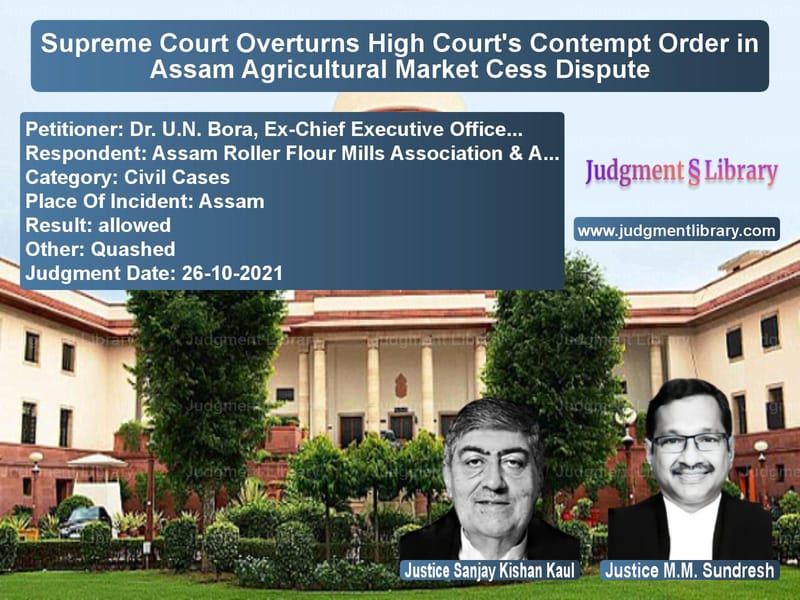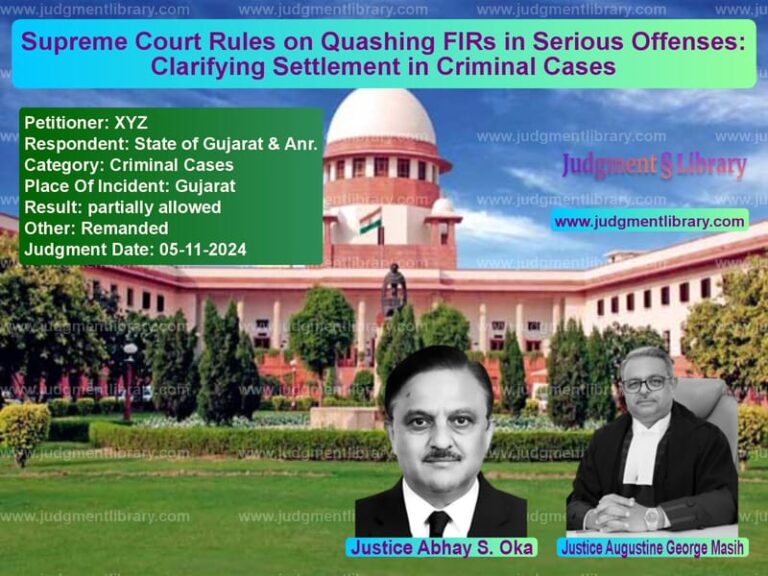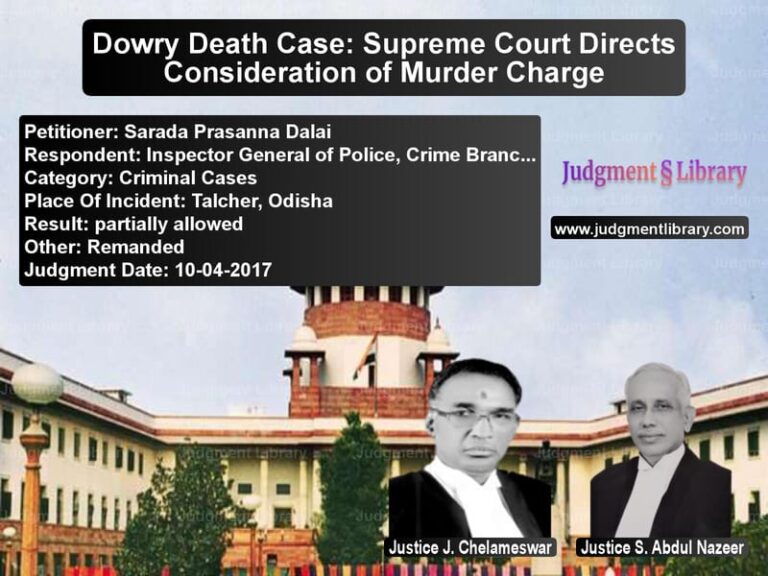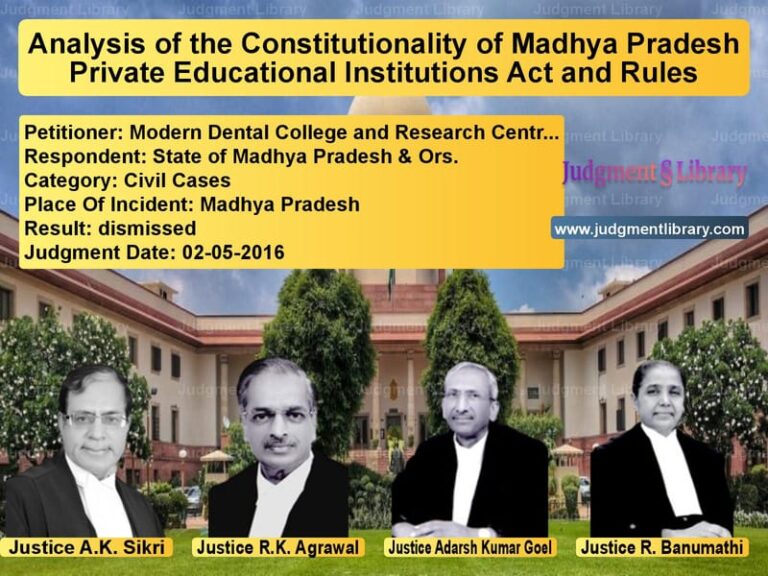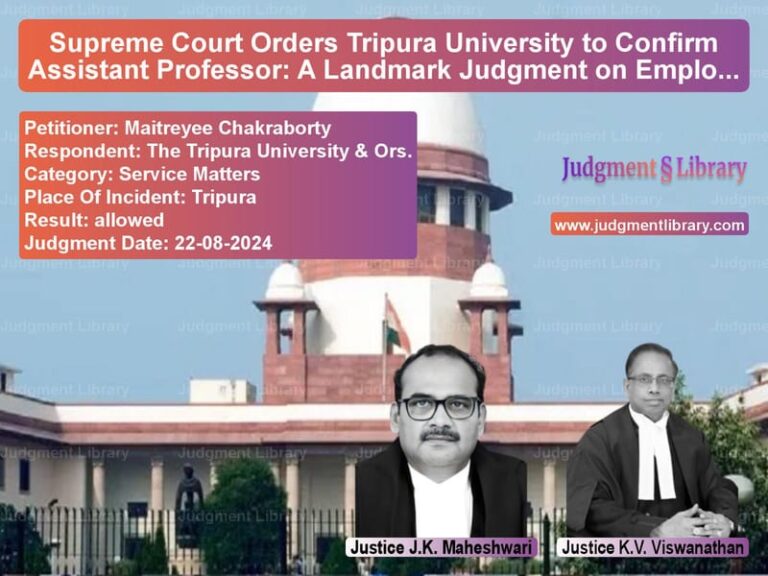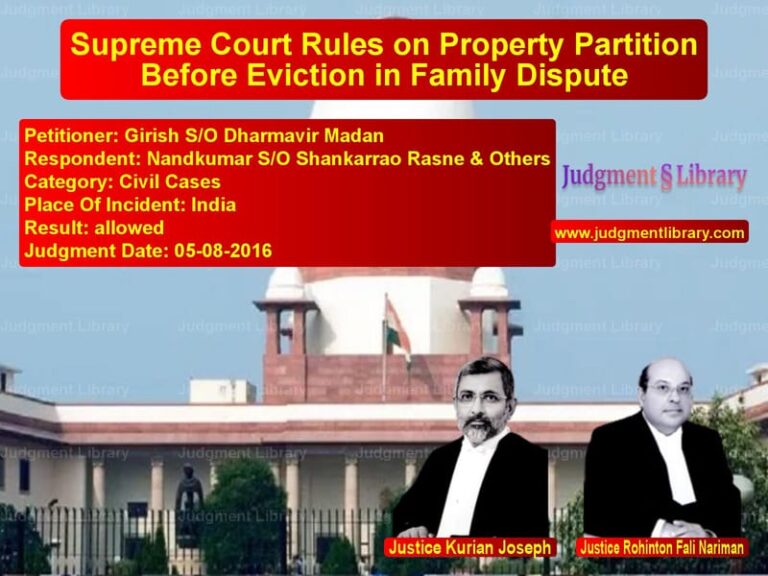Supreme Court Overturns High Court’s Contempt Order in Assam Agricultural Market Cess Dispute
The Supreme Court of India recently delivered a crucial ruling in Dr. U.N. Bora, Ex-Chief Executive Officer & Ors. v. Assam Roller Flour Mills Association & Anr.. The case centered around allegations of contempt against state officials for disobeying a High Court order regarding the imposition of market cess under the Assam Agricultural Produce Market Act, 1972. The Supreme Court set aside the contempt order, emphasizing that civil contempt must involve ‘willful disobedience’ and cannot be applied where alternative remedies exist.
Background of the Case
The dispute arose from the imposition of market cess on agricultural produce under the Assam Agricultural Produce Market Act, 1972. The Act empowered market committees to levy a cess on agricultural produce bought or sold in notified market areas. The respondent, Assam Roller Flour Mills Association, challenged the cess, arguing that their members purchased agricultural produce from outside the state and, therefore, should not be liable.
The High Court of Assam had ruled that traders must provide ‘direct evidence’ proving that purchases were made outside the notified market area to be exempt from the cess. Alleging that state authorities failed to comply with this ruling and continued to impose the cess arbitrarily, the Association filed a contempt petition against the appellants.
Legal Issues Examined
- Whether the imposition of market cess violated the High Court’s order.
- Whether the appellants, including state officials, committed willful disobedience of the High Court’s judgment.
- Whether the High Court had jurisdiction to enter into disputed questions of fact in a contempt petition.
- Whether alternative remedies were available to the affected traders.
Petitioner’s (Assam Roller Flour Mills Association) Arguments
The respondents argued that:
- The High Court had directed authorities to exempt traders who produced direct evidence of purchases outside the market area.
- The appellants deliberately ignored this directive and continued imposing cess without proper scrutiny.
- The authorities’ failure to review exemption claims and refund wrongfully collected amounts amounted to contempt of court.
- Documents such as sale invoices, lorry challans, tax receipts, and insurance records provided by traders were ignored.
Respondent’s (State Officials) Arguments
The appellants contended that:
- There was no willful disobedience of the High Court’s order.
- The High Court itself had ruled that disputed factual questions, such as verifying individual traders’ evidence, should be handled by a designated committee.
- The officers were merely executing their duties under the Assam Agricultural Produce Market Act and were not personally liable.
- The traders had alternative remedies, including approaching the designated committee or filing fresh challenges in civil courts.
Supreme Court’s Observations
On Willful Disobedience in Contempt Cases
The Supreme Court ruled that for contempt to be established, there must be a deliberate violation of a judicial order:
“Contempt jurisdiction requires proof of willful and conscious disregard for a court’s order. If two interpretations are possible, the element of willfulness disappears.”
On the High Court’s Overreach
The Supreme Court held that the High Court exceeded its jurisdiction by engaging in factual determinations in a contempt proceeding:
“A contempt petition cannot serve as an alternative remedy for adjudicating disputed facts, especially when a committee has already been constituted for that purpose.”
On the Traders’ Alternative Remedies
The Supreme Court emphasized that affected traders had an alternative remedy by approaching the designated committee:
“Contempt jurisdiction cannot be invoked when an aggrieved party has a clear alternative remedy. Traders could have approached the committee or sought relief under civil law.”
Final Judgment
The Supreme Court ruled:
- The High Court’s contempt order was set aside.
- The traders should seek redress through the designated committee.
- The state authorities were not guilty of willful disobedience.
- The contempt petition should not have been entertained as it involved disputed questions of fact.
Significance of the Judgment
- Clarifies the Scope of Contempt: Reaffirms that contempt must involve willful disobedience, not mere disagreement on factual matters.
- Limits Judicial Overreach: Prevents courts from using contempt jurisdiction to re-examine factual disputes.
- Upholds Due Process: Reinforces the principle that litigants must exhaust alternative remedies before approaching courts for contempt.
- Strengthens Administrative Accountability: Ensures that designated bodies handle technical disputes rather than courts.
Conclusion
The Supreme Court’s decision in Dr. U.N. Bora v. Assam Roller Flour Mills Association sets an important precedent for contempt proceedings. It underscores that judicial orders must be implemented in letter and spirit, but contempt cannot be used as a tool for adjudicating complex factual disputes. The ruling reinforces procedural safeguards, ensuring that alternative remedies are pursued before resorting to contempt proceedings.
Petitioner Name: Dr. U.N. Bora, Ex-Chief Executive Officer & Ors..Respondent Name: Assam Roller Flour Mills Association & Anr..Judgment By: Justice Sanjay Kishan Kaul, Justice M.M. Sundresh.Place Of Incident: Assam.Judgment Date: 26-10-2021.
Don’t miss out on the full details! Download the complete judgment in PDF format below and gain valuable insights instantly!
Download Judgment: dr.-u.n.-bora,-ex-ch-vs-assam-roller-flour-m-supreme-court-of-india-judgment-dated-26-10-2021.pdf
Directly Download Judgment: Directly download this Judgment
See all petitions in Contempt Of Court cases
See all petitions in Consumer Rights
See all petitions in Damages and Compensation
See all petitions in Judgment by Sanjay Kishan Kaul
See all petitions in Judgment by M.M. Sundresh
See all petitions in allowed
See all petitions in Quashed
See all petitions in supreme court of India judgments October 2021
See all petitions in 2021 judgments
See all posts in Civil Cases Category
See all allowed petitions in Civil Cases Category
See all Dismissed petitions in Civil Cases Category
See all partially allowed petitions in Civil Cases Category

